A Workshop in Honor of Professor Thomas Kailath on his 90th Birthday
April 8, 2025 (Tuesday)
ORGANIZERS
Ali H. Sayed, EPFL, Switzerland
José M. F. Moura, Carnegie Mellon University, PA, USA.
SPEAKERS AND AFFILIATIONS
ABSTRACT
Thomas Kailath is a giant of the mathematical and statistical signal processing fields. His contributions are wide and far, and his methodologies and deep insights have gone well beyond signal processing, touching many other domains, including communications, control and system theories, applied mathematics, and circuit design. He will be turning 90 in 2025. He has been a frequent contributor to ICASSP and a strong supporter of the IEEE Signal Processing Society. Honoring his contributions at ICASSP, which is being held in India for the first time, would be a most fitting recognition for a scholar of his standing who emigrated from India to the US where he excelled in academia and entrepreneurship. The wide range of accolades that he has attracted over the years brings enormous prestige to our discipline. The IEEE Medal of Honor, the IEEE Kilby Medal, and admission into the US National Academies of Engineering and Science are just some examples. During the workshop, the younger community of researchers will get the opportunity to meet this key figure in their field and to listen to presentations by invited speakers.
SPEAKERS AND AFFILIATIONS
SESSION 1
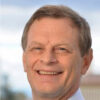
John M. Cioffi
Stanford University, CA, USA
CEO and Chairman of ASSIA, USA
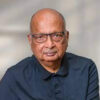
Arogyaswami J. Paulraj
Stanford University, CA, USA
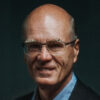
Bjorn Ottersten
Royal Institute of Technology (KTH), Sweden
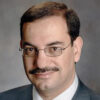
Ali H. Sayed
EPFL, Switzerland
SESSION 2
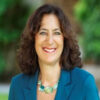
Andrea Goldsmith
Princeton University
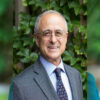
Mos Kaveh
University of Minnesota
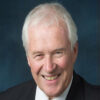
Louis Scharf
Colorado State University
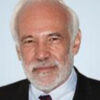
Patrick Dewilde
Technical University Munich, Germany
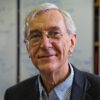
José M. F. Moura
Carnegie Mellon University
USA
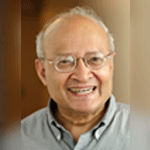
Thomas Kailath obtained a B.E. (Telecom) degree from the College of Engineering, Pune, India, in 1956 and M.S. (1959) and Sc.D. (1961) degrees in Electrical Engineering from the Massachusetts Institute of Technology.
After a year at the Jet Propulsion Laboratory, he joined Stanford University in 1963 as an Associate Professor of Electrical Engineering, was promoted to Professor in 1968, and was named to the Hitachi America Chair in 1988. He assumed Emeritus status in June 2001. His research has spanned a wide range of engineering and mathematical disciplines, and he has mentored over a hundred doctoral and postdoctoral students. Their collaborative efforts have resulted in over 300 journal papers, several of which have won outstanding paper awards. Additionally, these collaborations have led to a dozen patents and several books and monographs. He has co-founded and served as a director of several private and public high-technology companies.
He is a Fellow of the IEEE and a member of the US National Academy of Engineering, the US National Academy of Sciences, the American Academy of Arts and Sciences, the Indian National Academy of Engineering, the Academy of Sciences of the Developing World, and the Royal Spanish Academy of Engineering. In 2006, he was inducted into the Silicon Valley Engineering Hall of Fame.
Other major honors include Guggenheim and Churchill Fellowships, honorary degrees from universities in Sweden, Scotland, Spain, and France, and several IEEE medals and prizes, including the 2007 IEEE Medal of Honor for “exceptional development of powerful algorithms in the fields of communications, computing, control, and signal processing.” In 2009, he was awarded the Padma Bhushan by the Government of India for his contributions to Science and Engineering. In 2009, he also received the BBVA Foundation Frontiers of Knowledge Award in Information and Communication Technology for breaking the miniaturization barrier of chips. In 2012, Kailath was awarded the US National Medal of Science, which was presented by President Barack Obama in 2014 for “transformative contributions to the fields of information and system science, for distinctive and sustained mentoring of young scholars, and for the translation of scientific ideas into entrepreneurial ventures that have had a significant impact on industry.”
